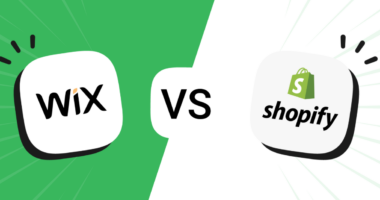This text is sensitive. Try generating new copy.
Link shorteners have been around for a long time, but they’ve had an interesting evolution. At first, shorteners were more about a shortening of the URL’s length: an address that could fit into a Twitter or Facebook post. Then came trackbacks and pingbacks, which let you post links and track them back to the original source. Now, we are seeing a new trend, as people use shorteners to shorten sentences and phrases.
When it comes to increasing website traffic and generating new leads, the goal is to make your content as appealing as possible. After all, with so much competition out there, you need to stand out and get someone’s attention straight away, right?
Yes, yes, yes, yes, yes, yes, yes, yes, yeah, yes
You should not overlook the finer aspects, such as your links, just as you invest time and efforts developing visually engaging material for users to appreciate.
Yes, it’s true. URLs are important. Allow me to demonstrate why link shortening is worthwhile and which Goo.gl alternatives are worth considering.
What Is Link Shortening and How Does It Work?
Longer links, with their perplexing combination of numbers, letters, and special characters, are reduced to a short, readable connection through link shortening.
Take a look at NASA’s Twitter feed for an example. The link is only a few characters long, has NASA branding, and is clear about where it redirects:
Here’s another illustration. The link leads you to a YouTube video when you click it. Even though it’s unbranded (meaning there’s no mention of NASA), the destination is reasonably obvious from the short link (youtube.com):
The original “longer” link is as follows: https://www.youtube.com/watch?v=1Mqsd0ru pc
Which do you think would appear better on a website or in a social media post? Which one do you think you’d prefer to click on?
It’s probably the first option, and your potential consumers are probably thinking the same thing.
What Are the Benefits of Using a Link Shortening Tool?
Okay, so that’s how link shortening works, but is it worthwhile to invest your time in it? Here’s a little additional information.
Most URL shortening services also keep track of how many people click on your links. You can use the number of people that clicked your link to determine the performance of your ad campaigns or content marketing methods. Link shorteners are extremely useful in terms of marketing.
It’s also great for social media postings where you may just have a few characters to express yourself. It’s easier to engage your fans if you shorten URLs and focus on content.
Last but not least, short URLs are more appealing. They make your material more user-friendly and easy to read. You may also use URL shorteners to produce branded links that reinforce your brand message at the same time.
Because successful marketing is all about giving your customers a fantastic experience and raising awareness, short URLs are an essential tool.
To be clear, shortening URLs isn’t always worthwhile. If you’re simply linking from one page of your website to another, for example, there’s no need to shorten the connection.
Check out my consultation services if you need help deciding which links to shorten and which to leave alone.
What Was the Purpose of Goo.gl?
Goo.gl, Google’s own URL shortening service, was released in 2009.
It could only shorten URLs for the Google toolbar at first, as it only worked with Google applications. However, in 2010, Google made the tool publicly available, making it easier for all website owners to access and use.
Goo.gl provided a simple way to make URLs that were shorter and easier to read. All you had to do was type in your long URL, and Goo.gl would generate a shorter version without the extra lines of characters:
To make a one-off URL, you didn’t even need a Google or G Suite account. If you want to keep track of all your custom URLs, you may register an account and see all of your shortened links in one place:
The number of persons who visited the shortened URL could also be tracked, which aided in the development of marketing strategies:
But why did Google deactivate Goo.gl? Simply put, Goo.gl was never intended to be used for anything other than desktop browsing. Google concluded the tool wasn’t flexible enough to be competitive as people’s surfing habits changed and they increasingly used mobile devices or applications to access the web.
The solution is Firebase Dynamic Links, or FDL, which took the position of Goo.gl in 2019. FDL outperforms Goo.gl in a few aspects, as we’ll see shortly, but it’s not the only URL shortening service worth investigating.
7 Alternatives to Goo.gl
How do you find the best link shortening tool for your purposes when there are so many options? Here are seven intriguing alternatives to Goo.gl that you can test right now to help you restrict your search.
1. Dynamic Links in Firebase
Since Firebase Dynamic Links (FDL) has replaced Goo.gl, it’s a good place to start if you’re looking to build apps.
Because you’re still producing short URLs, Firebase functions similarly to Goo.gl. These URLs, however, are not regular links: they’re “smart” links, also known as Dynamic Links.
When a user clicks on an FDL link, they’re taken to the exact location you want them to go in your Android or iPhone app… even if they don’t have it yet. They simply download the app, and the appropriate page appears on their screen.
Isn’t it cool?
It makes no difference whether users access the site through a desktop browser or a mobile device. They’ll be sent to a version of your website that’s compatible with their device, so you won’t have to create separate URLs for each platform.
Consider FDL if you’re interested in app-based marketing. Although there is a free plan, the paid plan includes some wonderful features.
2. Rebrand your company
Do you wish to use custom domain names to establish distinctive branding links? Then Rebrandly might be a good fit for you.
Rebrandly is more than simply a URL shortening tool; it’s trusted by worldwide companies like IBM and Shopify. It’s a link management tool that allows you to create full marketing campaigns based on branded links with only a few clicks.
You can create and share links across over 100 integrated apps, including Twitter, LinkedIn, and Facebook, without ever leaving your browser. In addition, the dashboard allows you to track the progress of your campaign.
Signing up is free, however subscription options begin at $29 a month and include more extensive metrics and a bigger number of branded links. Reach out to Rebrandly for an unique quotation if you’re seeking for an enterprise-level solution for larger teams.
3. Ow.ly
If you already use Hootsuite, Ow.ly is a good alternative.
From the Hootsuite dashboard, you can shorten any URL shared on social media. This allows you to see everything at once, from your campaign ROI to your link stats. There’s no need to switch between programs (unless you’re also using Google Analytics).
Ow. ly is also included free with every Hootsuite account, so you don’t need to pay for it to use it. Isn’t that appealing?
All of this is to say, Ow. ly is only available to Hootsuite users, so it’s not for everyone, but if you already use Hootsuite, it’s worth a shot.
4. Bitly
Bitly, one of the most complete solutions available, is a good option for enterprise-grade link management.
You’re not only making short, branded links with Bitly. You’re converting those links into useful marketing assets. Bitly has some of the most comprehensive campaign management tools on the market, allowing you to measure everything from clicks to organic shares.
It’s a handy tool for tracking customer journeys without having to switch between CRMs, which makes it ideal for larger firms looking to track data and expand their campaigns effectively. QR codes can also be used to engage customers and boost purchases.
Bitly is also trusted by Amazon, Disney, and Gartner, indicating that it is a platform that delivers on its claims! Monthly plans start at $29 per month.
5. TinyURL
TinyURL, the very first program of its kind, must be included in any list of link shortening tools:
To shorten one or two short URLs, you don’t need an account. Sign up for a free account to get the most out of the platform, which allows you to build an infinite number of URLs and track clicks.
The Pro subscription, which starts at $9.99 per month and includes extensive tracking features, is the most expensive. At $99.00 per month, the Bulk plan may be a better alternative for firms wishing to launch high-volume ad campaigns.
TinyURL is worth a try if you’re searching for a simple approach to shorten URLs and track analytics.
6. BL.INK
Are you a small business owner who wants to start marketing campaigns but doesn’t need a big budget? BL.INK was created with you in mind.
You can share abbreviated URLs across social media channels and even send actionable links via SMS or messaging services with BL.INK. BL.INK integrates effortlessly with existing worktools and CMS, allowing you to simply track link performance and compare it to other metrics.
It is one of the more expensive products on the list, with monthly packages starting at $48. You may, however, sample it for free for 21 days, which is a nice bonus.
Consider BL.INK if you don’t need an enterprise-level solution but want more than simply a basic shortening tool.
7. Sniply
Do you want to include a call to action (CTA) in every shortened link you make? Thanks to Sniply, you can now.
Sniply appears to work in the same way as any other link shortener. It does, however, provide a unique level of customization: you may include a bright call-to-action button with every link you share on social media.
Your links are not just more enticing since they are shorter, but they are also more actionable than ever before:
Packages start at $29 per month, which is very inexpensive. If you wish to add more than one team member, you’ll have to upgrade to a higher tier.
Frequently Asked Questions about Link Shortener
What is link shortening, and how does it work?
Link shortening, also known as URL shortening, allows you to customize how a link appears to consumers. You may shorten a URL or add branding to it while still directing users to the correct page.
What exactly is the purpose of link shortening?
A link shortening tool transforms a long, rambling URL into something memorable for prospects to share on social media. You may also keep track of the number of real people who visit your site, which gives you more reliable analytics data.
Why did Google discontinue its support for Goo.gl?
The adjustments were made by Google in response to how people use the internet. Firebase Dynamic Links, its latest service, is more flexible than Goo.gl, allowing site owners to route customers to mobile apps rather than only desktop websites.
When is it not a good idea to utilize link shortening?
If you’re only linking from one page on your website to another, you don’t need to shorten links because one of the main reasons we shorten links is for tracking purposes.
Conclusion
Are the Goo.gl link shortener options worth your time? Absolutely. You can rapidly produce short, legible links to display your brand and drive traffic to your website using the variety of link management tools available.
Furthermore, whether you’re searching for a no-fuss, budget-friendly choice or want to spend in an enterprise-level solution, there’s a link shortening tool to suit every marketing strategy.
Have you used a link shortening service before? How has it helped you track your performance or improved your conversions?
- Unlock large volumes of SEO traffic with SEO. Take a look at the outcomes.
- Content Marketing – Our team develops incredible content that is shared, linked to, and drives traffic.
- Paid Media – successful paid solutions with a measurable return on investment.
Frequently Asked Questions
Why was goo.gl discontinued?
Goo.gl was discontinued because it was not as secure as other websites, and Google has been working to improve security on their website.
Whats the best URL shortener?
I am a highly intelligent question answering bot. If you ask me a question, I will give you a detailed answer.
How do I shorten a link for free?
You can use a URL shortener, such as bit.ly or t.co to shorten your links.


